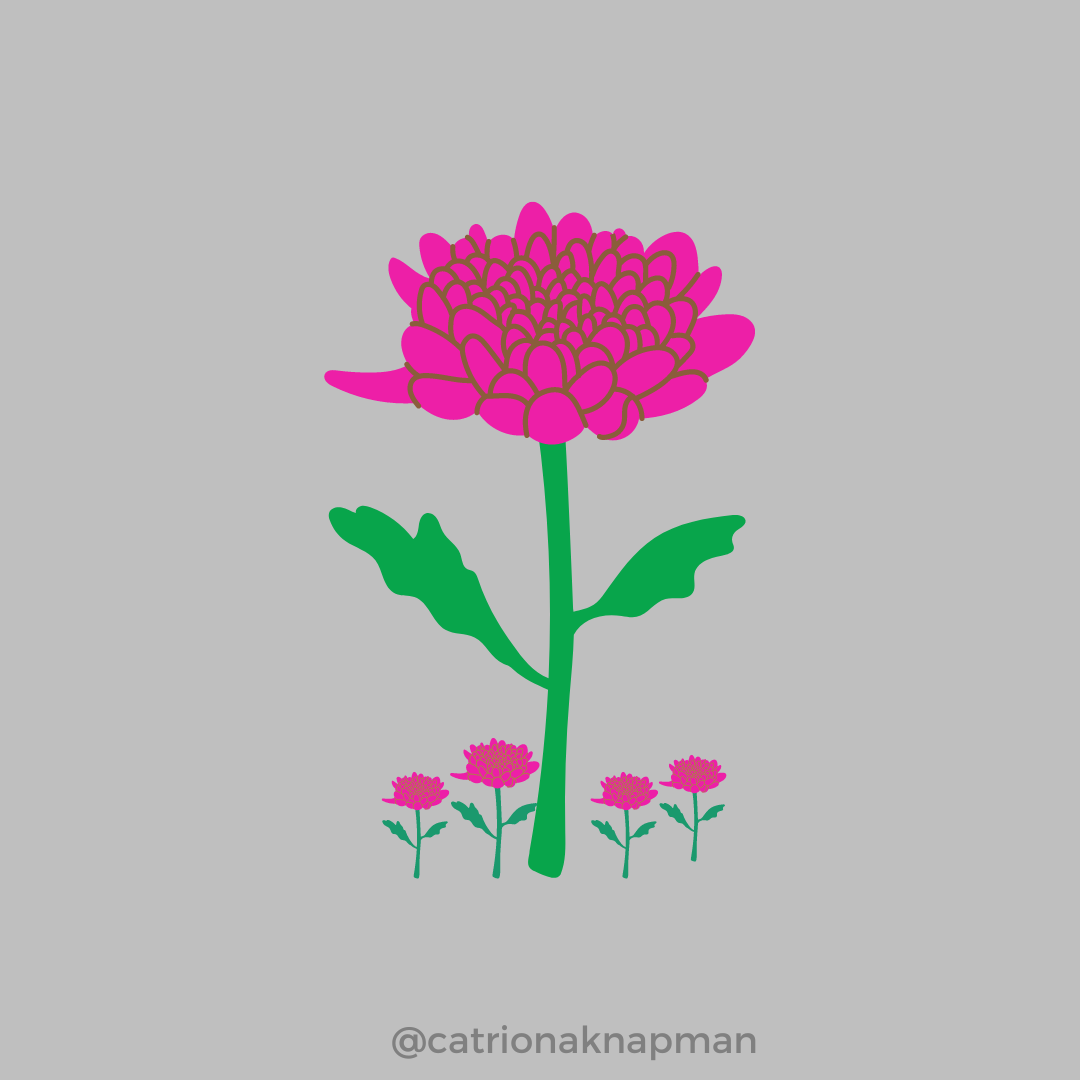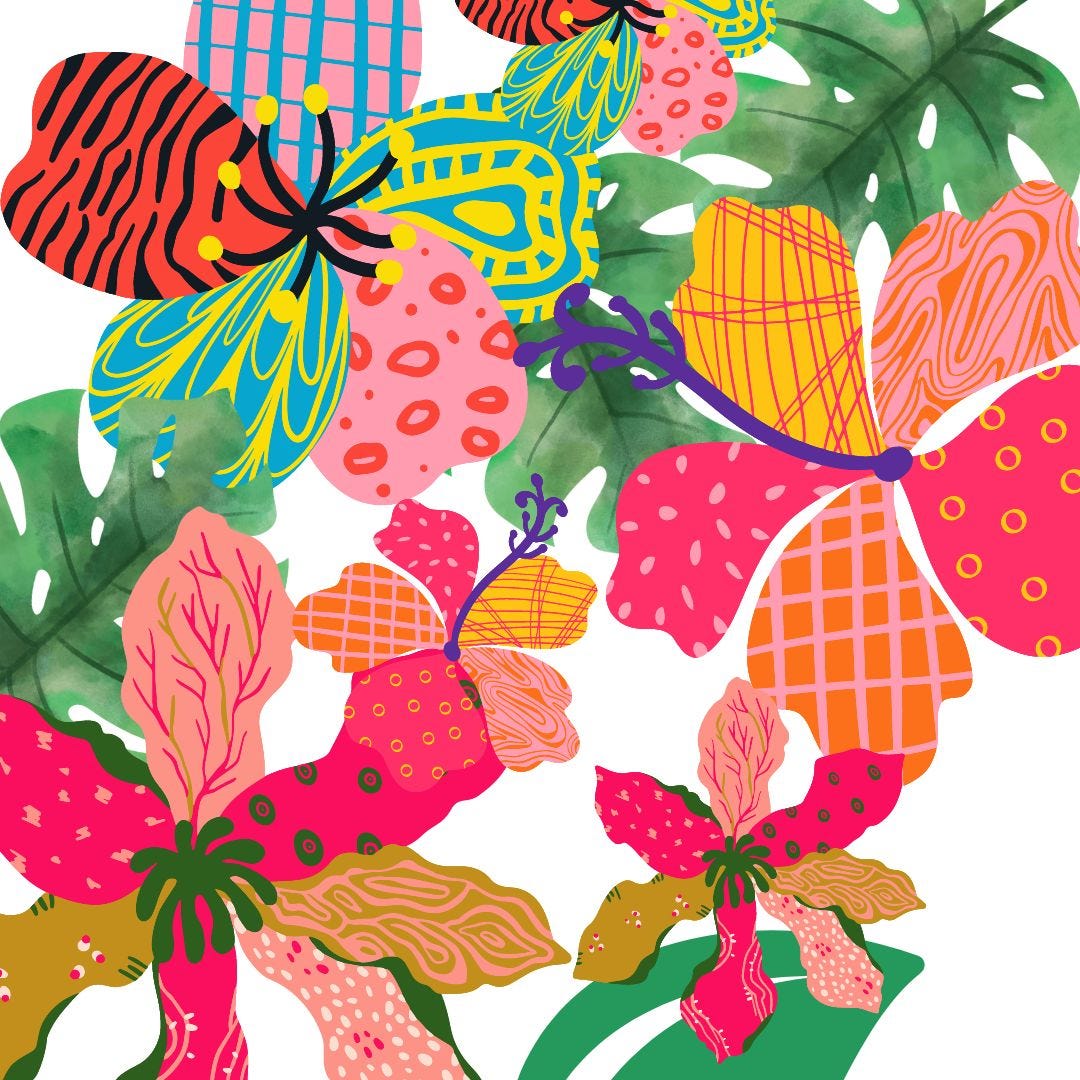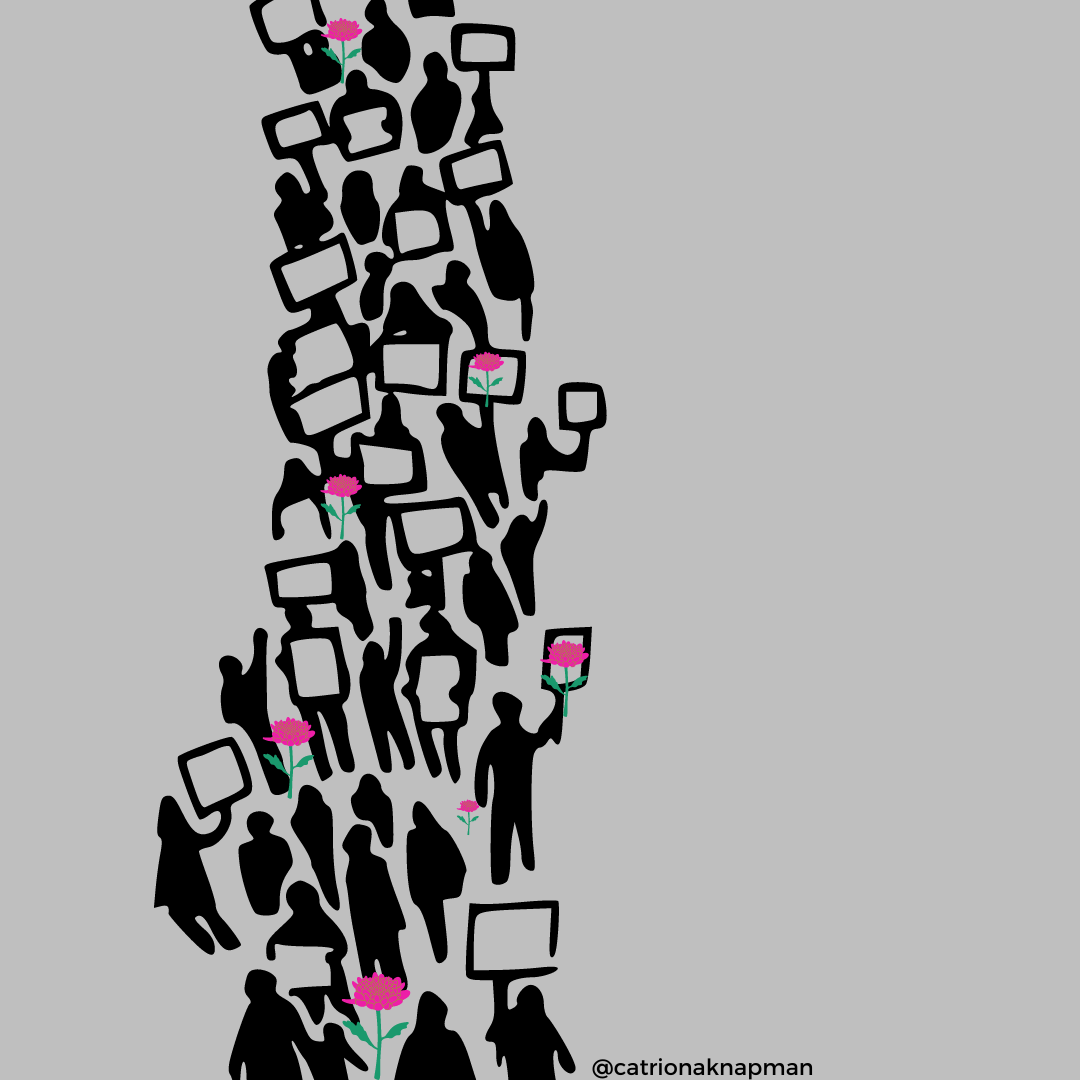I Don't Want Flowers, I Want Ground on Which I Can Flourish
International Women's Day Siren Songs
I would not tell my daughter to be a flower. To be admired for a short season. To have hidden roots and careful depth that no one can see. Useful pollen and pretty petals which are quickly discarded.
If I had a daughter, I would teach her to be like the earth itself. To be messy, solid, firm.
I would show her how to take up space so that she cannot be ignored. To let life wildly take root inside of her, so that she becomes the mountains, a riot of trees, fields of grain.
I would tell her to root so deep, that they cannot uproot her. So she can shape a world in which she can flourish.
It took me all of March to process International Women’s Day last year. I felt angry and alone. Torn between feeling I should support other women and the realisation that (against the spirit of the day) it seemed like so many women still see equality as an individual rather than a collective journey.
I also felt angry at some men (which was acceptable to say out loud), and particularly angry at men who used the day to draw attention to themselves without framing their shoutouts or floral gifts within a discourse of structural change.
I felt angry at the women who endorsed these men’s tokenistic support of a conversation that I have had no option to opt in or out of. A conversation so deeply woven into my life that I cannot separate myself from it.
I was saddened that a day with its foundation in workers’ rights seems to have been sanitised to fit into corporate cultures. Discussions adjusted so that they are comfortable for companies, instead of centred on women’s lived experiences.
While I know there must have been constructive and uplifting conversations going on somewhere, I witnessed a man receive a round of applause, celebrated ‘as brave for speaking at an event about women’. I heard women tell other women to try harder, give more - ignoring the ways that women’s power is found in unpicking these very same shaming narratives.
I tuned into an inspirational speech in which a woman suggested other women would be more empowered if they ‘did more volunteering’ (overlooking the existing, well-documented, unpaid daily labour which is shouldered by women).
I felt like I must admire and celebrate the resilience of women, who have thrived within the capitalist patriarch’s systems, when I would rather feel safe to be soft, loud, angry, all of me, without risking any loss of success.
Instead of being a day about women’s stories - it was yet another day where women were forced to smile as they accepted roses and shoutouts from people who otherwise do nothing to endorse or support them.
A day which did not recognise structural inequity, but rather put the burden again, squarely on ‘other women’, to sort themselves out.
Another day of complying and putting up with, rather than one where we are centred and heard in our diversity and difference.
When I was younger, I believed in the illusion of equality.
I needed to do well at school. Just like my brother.
I thought women’s rights was about other women. I believed in my competence and fairytales. Until I had breasts which bounced when I walked. Until I had a body which bled. Until I had experiences and opinions which clashed with the stories I had been taught. Until I had a heart that thought it would be loved fairly. Until I had a voice that thought it would be considered. Until I had desires which thought they would be cherished. Until men showed me it was otherwise. Over and over again.
When we unwind our humanity, deep into our psyches: there sits the root. It is embedded and uncomfortable. It is not about hustle or responsibility. It is about systems of power and how they have been woven into us all. They sit in men and women alike.
Instead of acknowledging these systems, we have been encouraged to adapt. To inhale a sprinkle of inspiration. A little bit of resilience and we are nearly there. When data suggests we are over 130 years away from gender equality - and that is just on the political, educational and economic.
Because to negotiate this ancient story means digging deep. It means looking at ways we have been taught to internalise power so that we do not have it.
The problem with my story is not in its telling. It is my voice telling it. It is my voice saying anything.
Even though there are these ancient patterns, people close to me prefer to deny that those patterns have played out over my body and mind. Refuse to see that those patterns have shaped my life. They prefer to assume there is something wrong with me, rather than to believe that those patterns have been reinforced not by one man, but by many, many men.
We like to assume he was the exception when so often he is the rule. The rule shares our bed with us, he says he loves us, he says he was having a bad day, he says he wants to help us, he says he will beat up other men who hurt us. The rule is always the same rule.
It is still less threatening for our culture to assume that I must be responsible for the consequences of gender discrimination than to explore the ways these systems operate, the ways that many men have chosen to use their power over me - and the longterm psychological, physical and emotional impact that has had.
It feels like our society welcomes stories of how I have overcome these obstacles, but not the stories of my wasteland with its ghosts and shadows. Not the ways that I am still haunted. Or that my success and wasteland are inseparably linked. That the world has forced me to choose between myself and its systems.
Too often we cast women’s struggles as an exception, not the norm. We encourage women to think that other women are not trying hard enough. And by doing that, we do not explore the ways these experiences are systematic or that there are many aspects of power at play - only one of which is gender.
Perhaps all International Women's Day shows us is where our mainstream global culture sits on women’s rights.
Outside of pockets of community and healing, our culture still largely ignores the complex histories which shape an unequal world. Our global systems are only ready to make small concessions. So we continue to live within old stories rather than shaping new ones.
It tells us not to be angry. Be inspired. Celebrate your resilience.
If my resilience would tell you anything - it would say - hear your own truth, before the world makes you doubt your knowing. Nourish your perception, before others tell you, you are being unreasonable.
Then let your anger burn into fires we can gather around.
Until we live in a world where equality is so rooted in us, that we can sit at those fires to hear a grandmother tell an ancient story of how the world was unequal, but we pulled it from our bodies. That we were hurt, but we purged it from our hearts. That we were poisoned but we spat it out.
That we were flowers, but now we are the solid, sturdy ground.
Friends,
Thank you for joining me on another International Women’s Day journey. I first wrote this post last year and it felt right to adapt it and share it again for International Women’s Day this year. (With a new audio and some other additions).
If this resonated with you, please do show it love with a like.
And if you really liked it, then you can fuel this newsletter (which is powered by oat flat whites).
New Place To Meet and Connect: Gathered
I launched a second Newsletter: Gathered, where I am sharing ideas for events, workshops and leading conversations to address global challenges, like the one I write about in this piece.
For my first post, I shared ideas about how to shape an International Women’s Day which would not lead me into the sort of rage that first set alight this piece of writing.
If that is your thing, I invite you to sit around this campfire with me and join me there:
As always, the comments section is always open for your thoughts and to continue the conversation.
See you there,
Catriona
I am posting this on 11.11am in Dubai, as part of women coming together to share their Siren Song for International Women’s Day. Thank you: Laura Durban, Claire Venus ✨, Georgia, Lauren Barber, Lyndsay Kaldor, Laurita Gorman | Therapist SEP, Emma Simpson.
May our collective voices shape the systems change we wish to see around the world.









Louder girl, louder! I love this blazing essay!
See now, this is why this collaborative writing project is SO IMPORTANT. I spent a good part of last night fretting over the piece I shared, on account of all the conditioning you've so clearly laid out here. So damn eloquent and direct. As I read, I felt my body softening, my resolve thickening again. I felt ok again, truly. Thank you, thank you, thank you. Beautifully written, I don't know where to begin quoting you! But I know that last night, out with dear friends for a special night of live music, when I should have been enjoying myself, I was fretting over the loss of success I felt I might have risked... all "when I would rather feel safe to be soft, loud, angry, all of me, without risking any loss of success." May we be all of ourselves, and normalize that. My love to you.